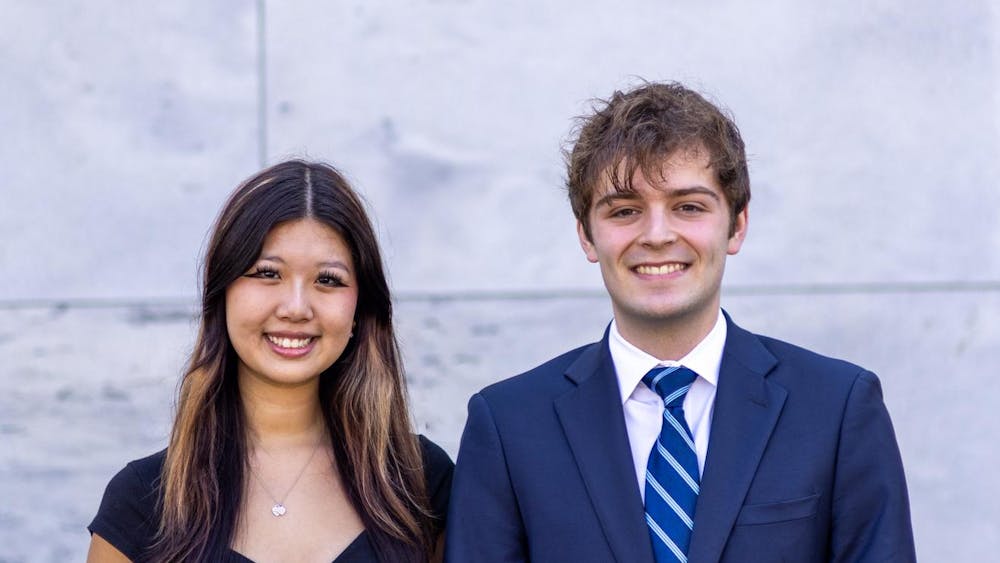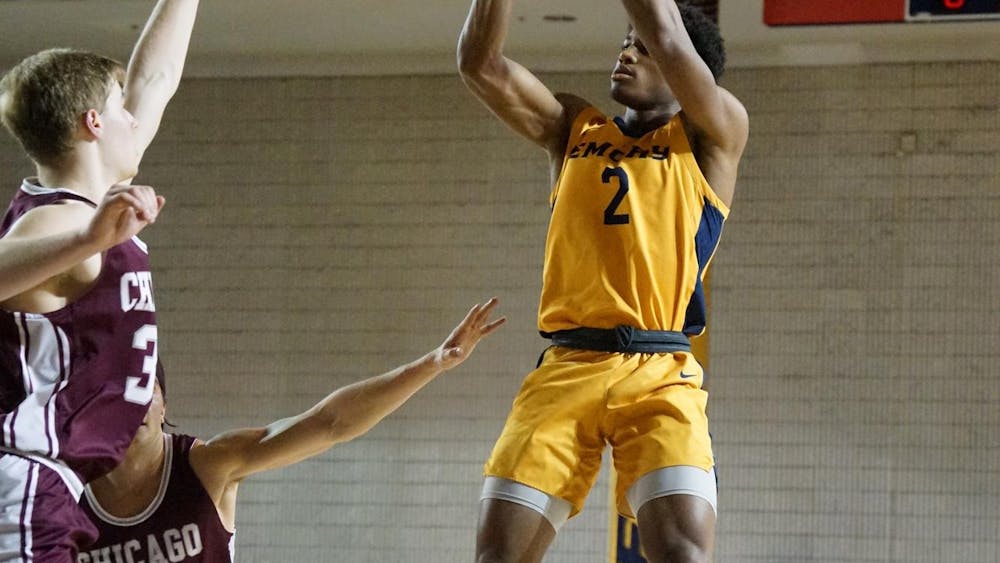The 51st legislature of the Student Government Association (SGA) heard a proposal Monday evening to change the Code of Elections to prevent SGA presidential and vice presidential candidates from running on joint tickets and approved a bill to fund an Oxford early graduates reception.
SGA is scheduled to vote on the bill to alter the Election Code at its next legislative session Feb. 5. The legislature passed the bill to fund the reception with nine votes and one abstention.
Speaker of the Legislature and Senior Representative William Palmer (18C) proposed Bill 51sl40, which would undo the changes made to the Election Code by the 49th SGA legislature. The 49th SGA legislature amended the Election Code to allow candidates for SGA president and vice president to run on a joint ticket, but the code does not specify whether candidates for those positions are required to have running mates, according to Bill 51sl40. The proposed bill would prevent candidates from running on a joint-ticket and from sharing campaign materials and platforms.
Palmer noted that in the Wheel’s coverage of the amendment change, there was a lot of reported confusion among legislators on whether candidates were required to have running mates in order to run, if voting would happen on the joint ticket or on individual candidate tickets and if candidates were only allowed to campaign together.
Palmer believes that the amendment change focused on allowing candidates to run together, but the change created confusion about whether candidates would be voted into office together.
“They didn’t want a situation in which a president and a vice president of SGA have differing goals and opinions,” Palmer said. “This was fully implemented in the most recent election. … The Elections Board did the best they could at first with sort of like a dual voting system where you first voted on joint-ticket candidacy and then individually. It wasn’t clear which one was the binding vote.”
SGA Vice President Natasha Armstrong (18B), who was SGA President Gurbani Singh’s (18B) official running mate last year, agreed with removing the joint ticket but supported joint candidacy and campaigning.
“When Gurbani and I decided that we were running together, we held very similar goals and initiatives and a vision overall for what we viewed SGA, how we wanted it to look,” Armstrong said. “Logistics wise, that was very difficult for the Elections Board to have the joint ballot, just because of the way OrgSync and other things work, so I definitely agree with Will there that a joint ballot would make things difficult, but I think joint candidacy and joint campaigning — [I’m] definitely for that.”
Despite the potential benefits voiced by Armstrong, Palmer said that he still didn’t support joint candidacy because potential candidates may not run if they lack a running mate.
“I don’t see a way to implement a joint ticket or joint candidacy without alienating somebody who runs without somebody at their side,” Palmer said. “In general, as far as SGA elections go, I liked when people were able to enter the race as themselves not competing against both people running for these two different positions.”
Palmer is also against candidates endorsing other candidates, which he had at first allowed in the first draft of the bill but later removed.
Palmer said that candidates making endorsements could create tension. For example, if a presidential candidate endorsed a candidate for vice president but the other candidate for vice president won, the president and the vice president’s relationship could be antagonistic.
Oxford Continuee Representative Muhammad Naveed (17Ox, 19C) agreed with Palmer’s opposition to endorsements because he does not want any tension between representatives after the elections.
“After elections … we’re still working with each other,” Naveed said. “Personally, I wouldn’t want to have any ill feelings toward anyone else because they endorsed someone.”
Naveed proposed Bill 51sl41, which funds $814 to purchase sandwiches, chips and water dispensers for the Oxford Early Graduates Reception, scheduled for Feb. 5 at Cox Hall. The cost of renting out Cox Hall was not included in the fee, and the bill does not indicate how the space will be funded. Eighty people are expected to attend the event, according to the bill. Naveed said he has not officially publicized the event, but he is confident that there will be enough time to advertise. Vice President of Communications Konya Badsa (15Ox, 18C) said Oxford early graduates are aware that a reception is being organized.
“We both have started a Facebook group for early graduate students, so we’ve been publicizing tips and random things that the students should be doing when they got on campus,” Badsa said. “We gave them a heads up that there’s going to be a reception, and they’ve been pretty positive about it.”
The bill passed with nine votes, and Naveed abstained from voting because he authored the bill. Naveed previously told the Wheel that whenever he proposes a bill, he abstains from voting in order to minimally influence the vote.
Clarification (1/5/18 at 2:05 p.m.): A sentence was added to clarify that Bill 51sl40 would prevent candidates from running on a joint-ticket and from sharing campaign materials and platforms.
Read More
Trending








